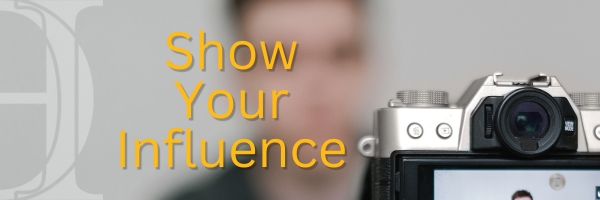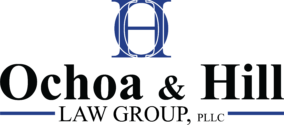
Table of Contents
- Introduction
- What is the O-1B Visa?
- Why is the O-1B Visa a Good Option for Social Media Influencers / Content Creators / Models?
- How Can Influencers Meet the Eligibility Requirements of the O-1B visa?
- What Evidence Can Influencers Use to Support their O-1B Application?
- Conclusion
Introduction
In today’s digital era, social media influencers have significant…[umm] influence and are the modern-day celebrities, shaping trends and captivating audiences worldwide. For those with aspirations in the United States, the O-1B visa offers a pathway to pursue those professional American dreams. This guide is a comprehensive exploration of the O-1B visa application process, crafted to cater to influencers (including but not limited to: models, YouTubers, Instagram / TikTok celebrities, etc.) navigating the digital landscape.
What is the O-1B Visa?
The O-1B visa, divided into Arts and Motion Picture/Television (MPTV) categories, is tailor-made for individuals showcasing extraordinary talent or accomplishments in their respective domains. While O-1B (Arts) celebrates excellence in the arts, whereas the O-1B (MPTV) is specially designed for artists primarily in motion pictures or television. This visa acts as a springboard for gifted individuals to showcase their prowess on a global stage, opening doors to lucrative opportunities in the United States.
O-1B (ARTS) versus O-1B (MPTV): Which One Applies?
USCIS has addressed a certain confusion that has emerged in determining which category’s standards the adjudicating officer should apply. Because art often entails a variety of mediums, if an O-1B applicant does not know which standards would apply to them, USCIS has given some guidelines addressing this issue. This confusion was addressed by USCIS regarding artists whose work will happen to be in the motion picture/tv industry (writers, composers, or set designers). Likewise, because of the emergence of online content, USCIS has acknowledged that it could be more difficult for officers to determine if an artist’s works falls under MPTV.
With online content becoming a big part of entertainment, things are more nuanced. While basic web stuff and DIY video blogs usually don’t count as MPTV, USCIS does see streaming movies, web series, commercials, and similar shows made in the style of traditional MPTV as part of the industry. This view lines up with how the industry sees things, making it easier for USCIS to put work on these kinds of productions under the O-1B (MPTV) category. If, however, an applicant’s work on tv would be incidental to their job, such as promoting their work for television interviews and appearances, then it would not fall under the MPTV standards. USCIS Policy Manual, Chapter 4: O-1 Beneficiaries.
Why is the O-1B Visa a Good Option for Social Media Influencers / Content Creators / Models?
The O-1B visa presents a compelling option for social media influencers, content creators, and models seeking to expand their horizons in the United States. This visa offers a legal framework for influencers to capitalize on their online presence and tap into the vast American market. Whether you’re a fashion blogger, beauty influencer, fitness model, or Instagram sensation, the O-1B visa facilitates monetization of content, collaboration with brands, and pursuit of creative endeavors in the U.S.
How Can Influencers Meet the Eligibility Requirements of the O-1B visa?
To qualify for the O-1B visa, influencers must secure a job offer or contract from a U.S.-based company, which can include agencies, production houses, or brands. Additionally, successful O-1B applications must meet the following eligibility criteria:
Eligibility Requirements for O-1B (ARTS)
To qualify for O-1B (ARTS), the O-1B applicant must either been nominated for or received a significant national/international award like an Academy Award, Emmy, Grammy, or Director’s Guild, or at least 3 of the following:
- Evidence of performing lead or starring roles in productions/events with distinguished reputation (e.g., critical reviews, advertisements, endorsements). 8 CFR 214.2(o)(3)(iv)(B)(1).
- Achieved national or international recognition for achievements (e.g., critical reviews in major newspapers, magazines). 8 CFR 214.2(o)(3)(iv)(B)(2).
- Performing lead, starring, or critical roles for organizations with distinguished reputation (e.g., articles in newspapers, testimonials). 8 CFR 214.2(o)(3)(iv)(B)(3).
- Record of major commercial or critically acclaimed successes (e.g., box office receipts, ratings). 8 CFR 214.2(o)(3)(iv)(B)(4).
- Received significant recognition for achievements from organizations, critics, government agencies, or other recognized experts (e.g., testimonials indicating authority). 8 CFR 214.2(o)(3)(iv)(B)(5).
- Commanded a high salary or will command a high salary for services compared to others in the field (e.g., contracts showing high salary). 8 CFR 214.2(o)(3)(iv)(B)(6).
Eligibility Requirements for O-1B (Motion Picture/Television)
For influencers looking to primarily work in motion pictures or television, the requirements under O-1B (MPTV) are slightly different. An applicant must have either been nominated for or received a significant national/international award like an Academy Award, Emmy, Grammy, or Director’s Guild, or at least 3 of the following:
- Evidence of leading or starring roles in productions/events with distinguished reputations (e.g., Critical reviews, Advertisements, Publicity releases, Publication contracts, Endorsements.). 8 CFR 214.2(o)(3)(v)(B)(1).
- National or international recognition for achievements (e.g., Critical reviews, Published materials in major newspapers, trade journals, magazines, etc.). 8 CFR 214.2(o)(3)(v)(B)(2).
- Lead, starring, or critical roles in organizations with distinguished reputations (e.g., Articles in newspapers, trade journals, publications, Testimonials.). 8 CFR 214.2(o)(3)(v)(B)(3).
- Record of major commercial or critically acclaimed successes (e.g., Title, Rating, Standing in the field, Box office receipts, Motion picture or television ratings, Occupational achievements reported in trade journals, major newspapers, etc.). 8 CFR 214.2(o)(3)(v)(B)(4).
- Significant recognition for achievements from organizations, critics, government agencies, or other recognized experts (e.g., Testimonials indicating authority, expertise, and knowledge of the alien’s achievements). 8 CFR 214.2(o)(3)(v)(B)(5).
- High salary or substantial remuneration compared to others in the field (e.g., Contracts or other reliable evidence of salary or remuneration). 8 CFR 214.2(o)(3)(v)(B)(6).

What Evidence Can Influencers Use to Support their O-1B Application?
For social media influencers aiming to secure an O-1B visa, assembling evidence that highlights their exceptional abilities and accomplishments is paramount. Here’s a breakdown of the types of evidence influencers can gather to support their O-1B visa application:
- Quantify Influence: Metrics such as follower count, engagement rates, and reach serve as quantitative indicators of an influencer’s impact. However, it’s crucial to provide context to these metrics to demonstrate their significance within the industry.
- Content Quality and Innovation: The quality, creativity, and originality of content are pivotal factors. Evidence of innovative content creation and unique storytelling techniques bolsters the case for an O-1 visa.
- Collaborations and Partnerships: Collaborations with reputable brands or fellow influencers add credibility. Documenting successful partnerships and endorsements showcases professional standing and viability.
- Media Coverage and Press Mentions: Press coverage in respected outlets validates achievements beyond social media. Features in mainstream media outlets underscore prominence and recognition.
- Testimonials and Endorsements: Firsthand accounts from brands, peers, or collaborators offer credibility. Endorsements from recognized experts add weight to claims of extraordinary ability.
- Brand Partnerships and Campaigns: Documenting successful collaborations illustrates value to advertisers and revenue-generating potential.
- Audience Engagement and Influence: Qualitative factors such as engagement and community impact are crucial. Active engagement and meaningful interactions with followers showcase influence.
- Industry Recognition and Awards: Recognition from industry-specific awards validates talent and distinction within the field.
By compiling compelling evidence across these categories, influencers can strengthen their O-1B visa applications and improve their chances of success.
Conclusion
Obtaining an O-1 visa as a social media influencer requires crafting a persuasive story that demonstrates exceptional talent and recognition in the digital realm. By carefully assembling evidence that meets visa requirements and accentuates individual strengths, influencers can enhance their prospects of approval.
At Ochoa & Hill Law Group, we are committed to providing comprehensive legal support and guidance to couples navigating the complexities of the green card application process. Contact us today to schedule a consultation with us and take the first step toward realizing your immigration goals.
Disclaimer: The information provided in this guide is for informational purposes only and should not be construed as legal advice.




